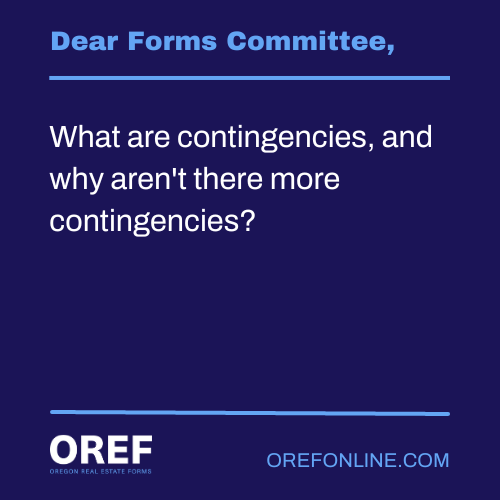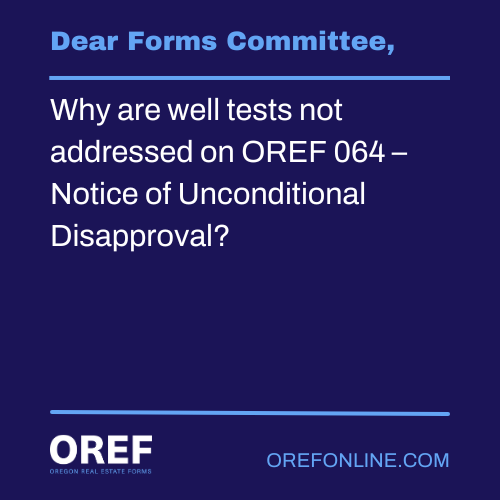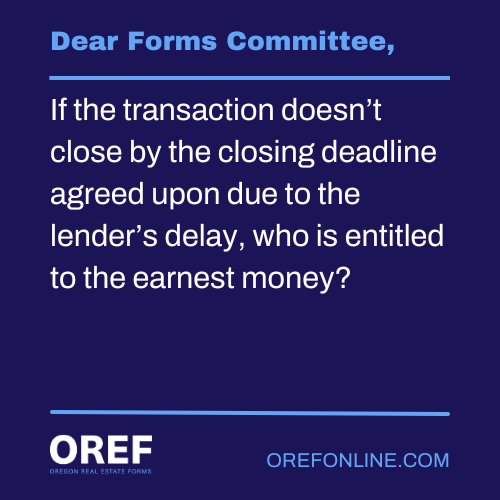Dear Forms Committee: What are contingencies, and why aren’t there more contingencies?
The OREF Residential Real Estate Sale Agreement has a number of built-in contingencies:
- the receipt of contingent funds, if indicated in Section 4;
- the three financing contingencies, unless the transaction is all cash, or, if the seller finances the transaction, agreement on the financing documents;
- agreement on the exceptions to title that will appear in the title insurance policy;
- satisfaction with the results of inspections; and
- the right to revoke after receiving a seller’s property disclosure statement.
Other contingencies are applicable only in certain situations, such as those contained in the septic/onsite sewage, private well, buyer’s contingent right to purchase, lead-based paint hazards, HOA/townhome/planned community, investment property, seller’s contingent obligation to sell, and solar panel system addenda.
As you can see, these contingencies give buyers many opportunities to learn about the property and terminate the transaction if they learn about conditions that are unacceptable to them. In response to subscriber requests over the years, OREF’s Residential Forms Committee has provided new contingencies to provide flexibility to the parties. When new contingencies are proposed, the Committee considers whether they would be useful to real estate agents and the potential impact on consumers.
Because every real estate transaction is different, every possible contingency is not included in the OREF sale agreements. Rather, OREF provides addenda to incorporate additional contingencies as needed. With each contingency, care is taken to ensure the purpose and potential outcome are clearly defined to avoid confusion or frustration. If there is a contingency you feel is needed, the Form’s Committee welcomes your suggestions.
All comments and responses from OREF or its staff, managers, and volunteers are non-legal opinions made for general purposes. Each Forms subscriber must rely solely upon their Principal broker or personal legal counsel for specific advice and instruction. You and your client should independently confirm that the Form(s) you use are legally suitable for the purposes intended and that they are current with respect to all laws and regulations.




